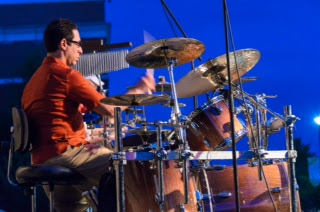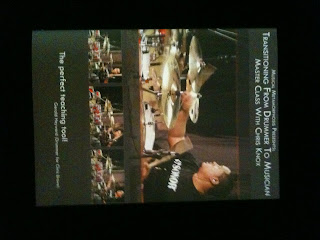King David and his companions were obviously excited about
bringing the Ark of the Covenant back to Jerusalem. In the
procession, a number of instruments are being played
according to Scripture:
"And David and all the house of Israel played before the
LORD on all manner of instruments made of fir wood, even on
harps, and on psalteries, and on timbrels, and on cornets,
and on cymbals." 2 Samuel 6:5 KJV
My research indicates that the band for this event may have
included a distant relative to the shake tambourine.
Some versions of the Bible use the word, castanets instead
of cornets (as the above KJV).
"This word (castanet) is incorrectly translated “cornets” in
the King James Version. The castanet was probably about
the same instrument as the Egyptian sistrum…a loop-shaped
metal frame through which were passed loose rods at the
ends of which were rings. The instrument was held by a
long handle and was rattled during songs and dances."
Fortune, A.W. "Castanets," The International Standard Bible Encyclopedia.
edited by James Orr. Grand Rapids, Michigan: by William D. Eerdmans
Publishing, 1939
The sistrum seems to be a Biblical percussion instrument
with a sound and playing technique that resembles the shake
tambourine.

 You can even generate a decent suspended cymbal roll with one stick.
You can even generate a decent suspended cymbal roll with one stick.
























